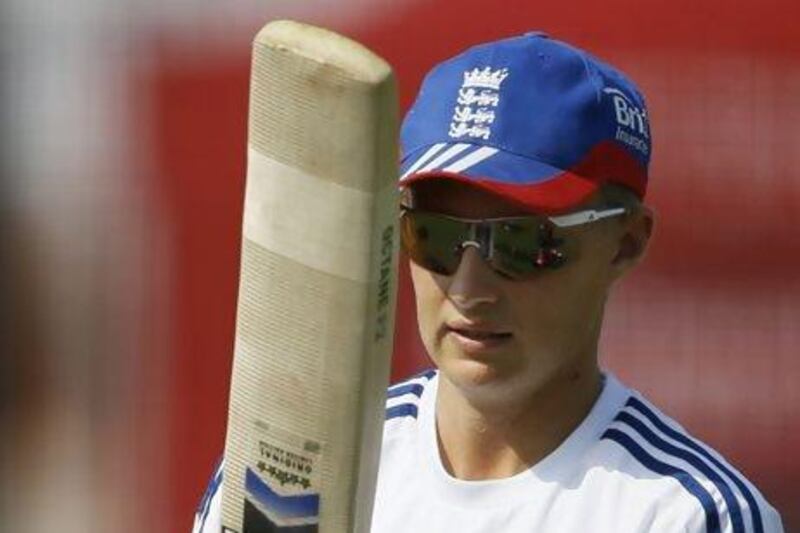The downside to being built up as the next-best thing since Twitter is still the same as being the old next-best thing since sliced bread: you live and die by gravity. The quicker you rise, the higher you are placed, the quicker you fall, the harder you fall.
There was so much to love and be infuriated by in the first
[ Ashes ]
Test that the twin failures of Joe Root as opening partner to Alastair Cook escaped unnoticed.
That is exactly as it should be.
Root failed twice, but it was only his first Test as opener and he is a long-term investment. One Test means little.
But such was the build-up to him
[ replacing Nick Compton ]
and the unquestioned belief that Root is destined to be England's next opening prodigy, that his success is merely a matter of time and not, you know, the normal forces of nature, fortune and fate which also confer before deciding upon a man's direction.
Yet you cannot help but wonder how many failures it will take before questions start.
Say
[ England ]
do not do as well in the next two Tests. Root makes, say, one fifty, in six completed innings.
Is that enough for him to start worrying, or for England to start rethinking about Compton again, and for everyone to recalibrate their opinion of him?
The thing is, Root looked as good as he is thought to be at Trent Bridge.
He appeared unflappable, cheery at times, and clearly in possession of that most prized opening virtue: the ability to forget completely about the last ball that made you look a fool.
In that first-innings 30, there were plenty of pleasant strokes, as well as evidence that he plays the ball late and softly enough to equip him well against a new, swinging, bouncing ball.
But he was dismissed when other batsmen might reasonably consider themselves set, over an hour and a half, and 64 balls into his innings.
Peter Siddle's yorker was a good one, swinging late, but was there just the slightest lapse in either Root's concentration or technique? Because there lies the crux: no batsman can be made to look so worked out and worked over, so permanently fragile, so dismissed every time he is out, like an opener can.
Opening is not so much a batting position as it is a perversity, which is why placing so much faith and investment in one feels so dicey.
By its nature, it is far more consuming than any other position, and in need of a separate temperament. If any opener thrives, it will invariably be after he has played the vast bulk of the best balls of a Test innings.
He meets the fast bowler when he is freshest, quickest and most likely to swing the ball. The fielders, those in the slips, are at their most alert.
In the long-term openers can seek refuge in the middle, as plenty have.
But rare are those who make the opposite migration, an indication of the unique demands.
Indeed, to a lifelong middle-order batsman, even a one-down, opening can be a peculiar kind of curse.
And if batting is essentially an individual meditation, opening is traditionally a collaborative effort. The reputation of no other batsman relies as much on a partner as does that of the opener. Opening batsmen can be great, but generally, they must also be half of a great pair.
That is a whole separate challenge. The opener must find a connection with his partner.
Trust must be developed; the pair must be selfless, which inverts the default setting of most batsmen.
These days, it is preferable if you play in contrasting styles, more so if you are a left-right combination. It is not only important that you are a good batsman, or even that you are putting on runs with your partner. The fit must be right.
This is what Compton discovered, that despite averaging 57.93 over 17 Test innings in partnership with Cook, with three century and three fifty stands to show for it, he was not the right man.
Root has opened all his career, plus he is younger and feistier, with a little bit more batting joie de vivre.
In a top three sometimes accused of being a bit dull, he is thought to be the right fit.
His journey to discover whether he is has begun, not on the finest note, and Compton will tell him that sometimes, before you even know it, the journey has ended.
Follow us
[ @SprtNationalUAE ]





